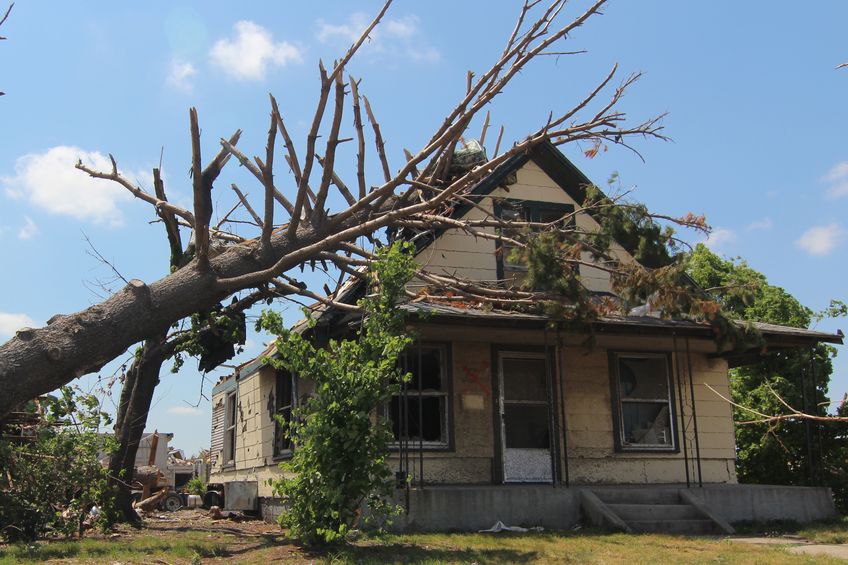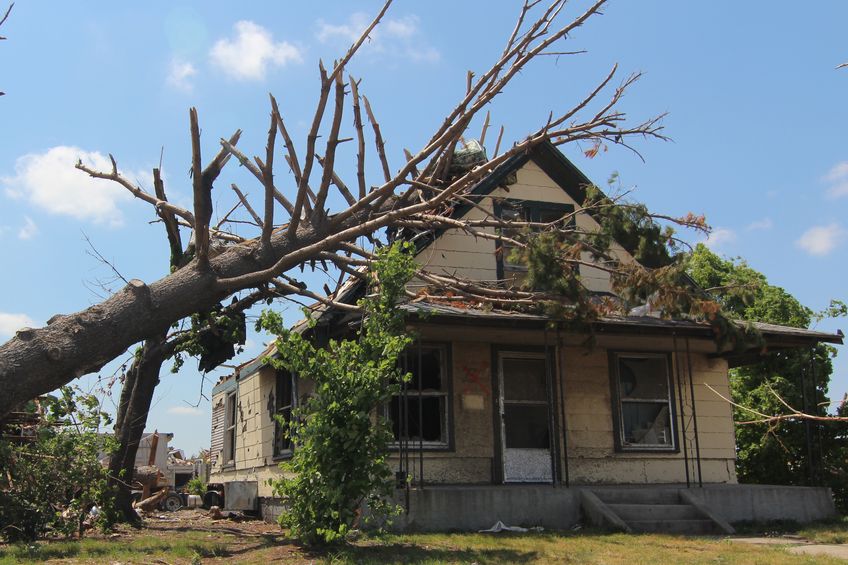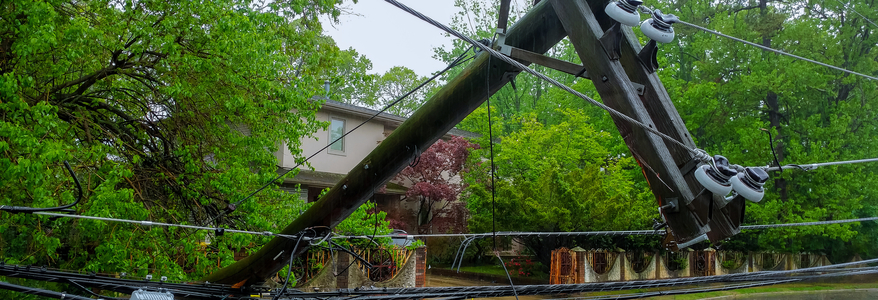Prepping for the Aftermath

So you made it through the storm. The power is out, a few trees are down, maybe there are a few feet of water in your street. But you’re alive, there’s a roof over your head, and no immediate danger. What now? What to do in the aftermath of a disaster isn’t usually talked about as often as what to do in the disaster, but it can be just as important and is certainly longer lasting.
Seventeen people are dead because of hurricane Michael. 400,000 people were without power. You’re far more likely to be one of the latter and should be prepared.
While the advice in this article focusses mostly on hurricanes, much of it is applicable to any disaster from earthquakes to floods and fires that disrupt local infrastructure.
What to Have:
Preparation is often key. If you live in an area where disasters like hurricanes are common, you should always have at least a basic emergency kit ready to go. None of these supplies expire, and having them stocked in your house can mean the difference between rushing to the store to fight over the last few cans of food in the best case, or going hungry in the worst.
Food:
In a major disaster, roads may be closed and stores may not be open for days or even weeks afterward. You should have at least a week of food for everyone in your home. Do not rely on perishables.
Your emergency stash should be canned, freeze dried, or otherwise nonperishable. That doesn’t mean you have to spend weeks living off of beans. Invest in something tasty, and buy a propane or camp stove. You don’t want to be scooping cold beans out of a can for days in the dark.
Don’t forget to make sure your can opener is manual, rather than electric, and the food provided accounts for dietary restrictions such as allergies.
Water:
Water bottles always sell out before a major disaster. To avoid the rush, simply invest in some gallon jugs of bottled water ahead of time. Even if you drink the water before the disaster, you can simply fill your jugs along with your bathtubs and sinks from the tap before the power goes out. At least one gallon per day per person is recommended.
Remember, you may need water not only for drinking, but cooking, brushing your teeth, and bathing as well. And keep in mind that even if the water is running after a disaster, the local water treatment plants might not be. Always assume that there is a boil-water-warning until you have official notice otherwise.
In the event of a truly major disaster, a simple water purification system will prove useful as an emergency backup.
Gas and Power:
Be sure to have multiple flashlights, at least one for everyone staying with you, and several sets of batteries for them. Batteries don’t have a shelf life. You can buy a stockpile anytime and not have to worry about the rush to get them before a disaster.
I also recommend something like an electric lantern for area lighting. For devices that don’t use batteries, like phones and tablets, be sure to charge them fully before the power goes out, and conserve their batteries. Simply putting a phone in airplane mode when not in use can help conserve the charge. A combined battery pack and solar charger is always a good investment.
Fill up any and all vehicles you own. Gas stations can’t pump without power, which might not be back on for days. You don’t want to be stranded in your neighborhood until the pumps start again. Also, be aware that gas usually sells out before a hurricane, so fill up early, and expect long lines at the pump.
If you live in a hurricane or power outage prone area, it may be worthwhile to invest in a generator. Even something small can keep your fridge running, and keep the food inside it from spoiling, along with a couple of fans for the heat. A little bit of power can go a long way towards your comfort. But be sure to read the directions of your generator and never run one indoors.
Bonus Checklist:
In addition to these essentials, a checklist is included below of many other things that you should have. These are not necessarily less important than the ones above.
- Cash: ATMs and banks will be closed, and many businesses will open cash-only before the power is on.
- Battery powered radio
- Cleaning supplies, including trash bags for debris clean-up.
- Important documents: This includes insurance information, Social Security cards, identification, and anything else you want to save. Water damage is possible, so be sure to store it somewhere high, dry, and waterproofed. Even a ziplock bag works.
- Pet supplies: They’ll need a stockpile of food and water just like you, along with medication, leash, and muzzle if necessary.
- Entertainment: Days without power can be boring. Board games, cards, and books can save you from boredom.
- First Aid and Medical Supplies: Besides a standard first aid kit, be sure to have an ample supply of any medication you or your family may need.
What to Do (and Not Do):
There’s still danger even after the disaster. Flooded streets and downed power lines make for a dangerous combination. If you have to leave your house or property, do it carefully. Avoid puddles or flooded areas and keep a close eye out for powerlines which might still be active, even if they’re “down”.
Remember that in severe flooding sewage may overflow in the streets and provide a serious health risk, so don’t go wading into the street. Also, remember that gas lines may have been disturbed or broken, and you should not light any fires until you are sure that it is safe.
If you have any property damage, take pictures for insurance purposes before cleaning anything up. Roads may be closed due to downed trees, power lines, or erosion, so be sure to keep up to date with official notices online or by radio. Avoid driving anywhere until they have been cleared. You will most likely have at least a day’s worth of labor clearing down branches or trees from your own property. Be sure to have appropriate gloves, clothing, and equipment to do so.
It may be days or weeks before power and normalcy are restored. In the meantime, enjoy a few days off from work. Make the most of it. Read a book, spend time with your family, and talk to your neighbors.


